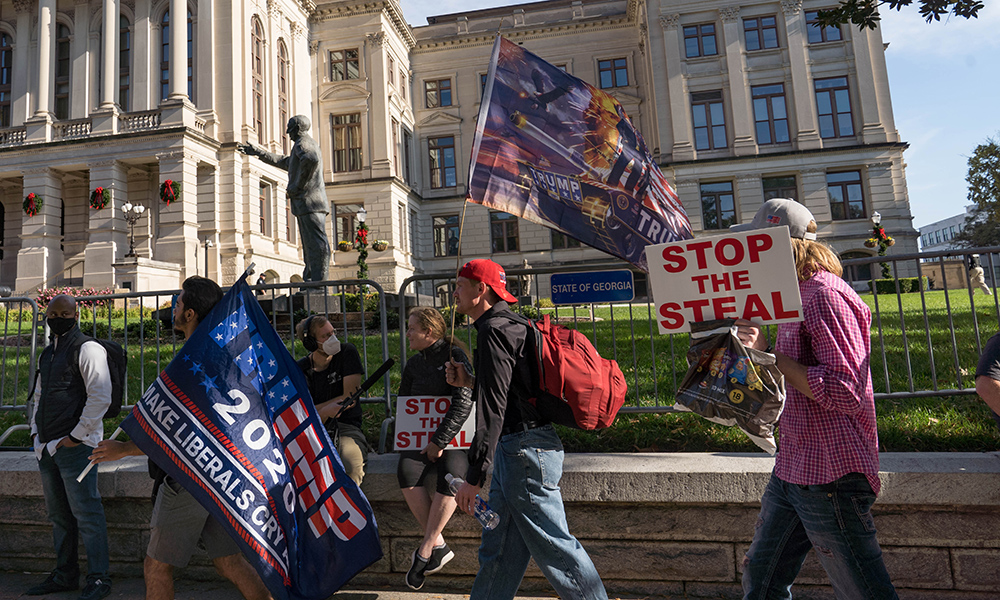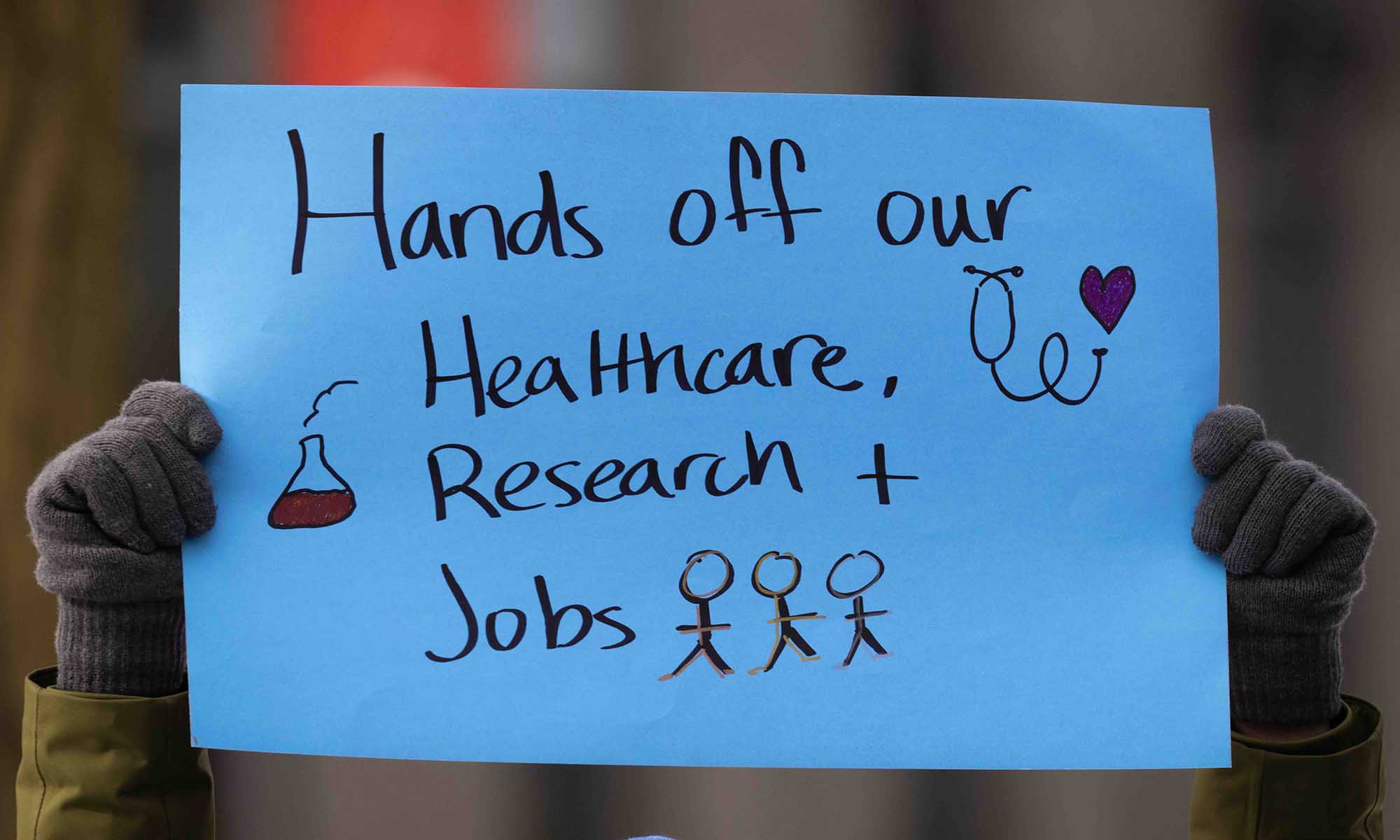New Bright Line Watch survey finds that fewer than a third of Republican voters have confidence in the national vote count.
As President-elect Joe Biden and his administrative team officially begin the transition process, only about 20 percent of Republican voters consider him the true winner of the election. Nearly half of all respondents—48 percent—still expect President Donald Trump to be inaugurated for a second term on January 20, despite plenty of indicators to the contrary. Those are among the findings of the latest Bright Line Watch (November) survey—the political science research project of faculty at the University of Rochester, the University of Chicago, and Dartmouth College.
In the news
Most Republicans Say They Doubt the Election. How Many Really Mean It?—New York Times in The Upshot.
“We were really struck by how much Trump’s baseless narrative of voter fraud to explain his loss to Biden has continued to shape the beliefs of his supporters after the election,” says Gretchen Helmke, a professor of political science at Rochester and a Bright Line Watch founder.
The watchdog group’s latest survey shows a clear increase in the public’s partisan divide over the legitimacy of the election compared to their previous survey in October. In the October survey, 33 percent of strong Trump supporters still said they would view a victorious Biden as definitely or probably the “rightful winner.” Yet after the election, only 9 percent of strong Trump supporters saw Biden as the rightful winner. Indeed, 67 percent of that group now expressed certainty that Biden was “definitely not the rightful winner,” the scientists found.
“Although it’s typical that voters’ optimism about things like the economy, or the direction of the country shift depending on whether their candidate wins the election, it’s really striking just how pervasive the loss of confidence in elections has become among Trump’s supporters in the wake of his defeat,” says Helmke.
As they had done throughout the project, the group fielded two parallel surveys— one to political experts and one to a representative sample of the US population—between November 12 and 25.
Bright Line Watch asked the public about the legitimacy of the election results, their confidence that votes were cast and counted fairly, their beliefs about voter fraud, and their willingness to condone political violence. Meanwhile, the experts were asked to rate the likelihood of 23 scenarios related to the November election and the transition to a new administration that could lead to political crises. As in previous surveys, the team asked both groups to assess the quality of US democracy overall and to rate the performance on 30 distinct democratic principles.
Full report
Read the watchdog group’s latest (November 2020) survey, “A Democratic Stress Test — The 2020 Election and Its Aftermath.”
Key findings
Public survey findings
- Compared to before the election, confidence in the election process and the legitimacy of the outcome became much more polarized between Trump supporters and opponents.
- Most notably, confidence in the national vote count plummeted among Trump supporters, declining from 56 percent before the election—to 28 percent afterward.
- Belief about voter fraud became even more polarized: larger majorities of Trump supporters now believe that fraud is rampant compared to before the election.
- More encouragingly, the willingness to condone political violence declined slightly after the election.
Expert survey findings
- Experts in the October survey correctly identified six nightmare scenarios that did transpire (among the eight that the experts had forecast as most likely) but they generally overestimated the probability of outcomes seen as somewhat or not very likely (and none of which actually took place).
- Experts believe it’s highly likely that Trump will continue to refuse to recognize Biden’s presidency and to obstruct the transition.
- Experts think it’s highly likely that the president will take actions to protect himself and those around him from legal exposure after leaving office.
- Experts regard problems with the Electoral College and the formal recognition of Biden’s presidency as unlikely.
- Large majorities of experts regard Trump’s attacks on US elections and the press as serious or grave threats to American democracy. By contrast, experts do not consider mail balloting to pose a threat to democracy and are divided over Amy Coney Barrett’s Supreme Court appointment.
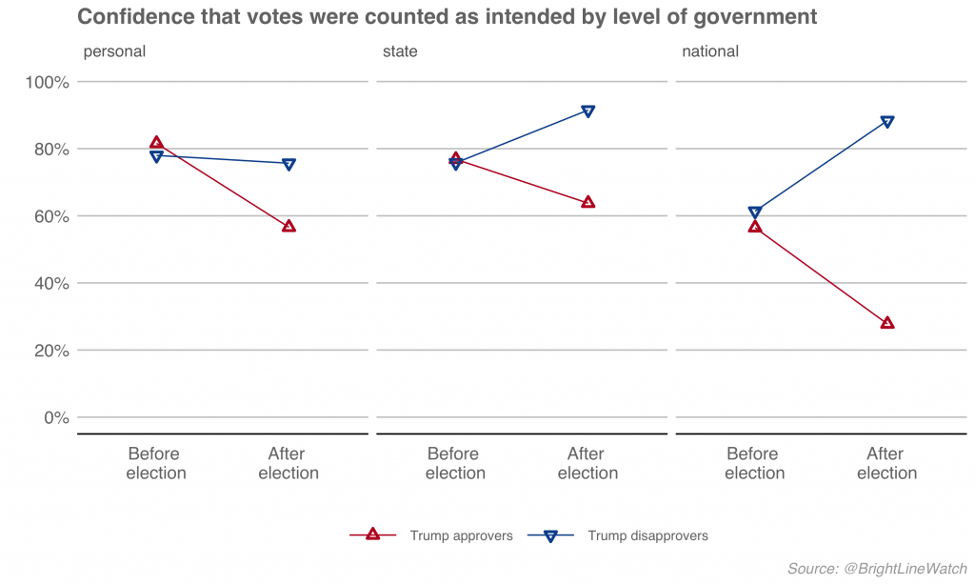
“We found especially disconcerting that the polarization of beliefs about the legitimacy of election between Trump supporters and opponents, which was already extremely high beforehand, has only grown in the wake of the presidential election,” says Helmke.
More about Bright Line Watch
Originally founded by the University of Rochester’s Gretchen Helmke and three other political scientists—Brendan Nyhan and John Carey of Dartmouth College, and Susan Stokes of the University of Chicago—Bright Line Watch is a nonpartisan initiative that conducts regular surveys designed to gauge the overall stability and performance of American democracy. Mitchell Sanders ’97 (PhD), of Rochester-based Meliora Research, is the group’s director of survey research.
In the last poll conducted right before the November election, for example, Bright Line Watch found huge gaps between the two groups in terms of concern about voter fraud, but not about whether votes would be counted fairly at the national level. In the postelection survey, however, the gaps in perceived fraud were even larger, with roughly 80 percent of Trump supporters now expressing the belief that fraud of all types (stealing or tampering with ballots, pretending to be someone else, voting by non–US citizens, voting multiple times, or voting with another person’s absentee ballot) was rampant in the 2020 election—having occurred thousands of times, or even millions of times. Yet, fewer than 20 percent of Trump opponents believe in this kind of fraud, the scientists found.
“The levels of fraud in which these respondents profess to believe are staggering and would require the complicity of thousands of local electoral officials and volunteers, including numerous Republicans and nonpartisan participants,” the political scientists write. Yet, regardless of the fact that all claims of widespread fraud and electoral misconduct have been dismissed by judges in Pennsylvania, Michigan, Nevada, Arizona, and Georgia, the false narrative has become pervasive among Trump supporters, the team notes.
Additionally, the group saw gaps open up in the respondents’ confidence that votes are counted fairly, says Helmke. For example, prior to the election, about 60 percent of both Trump opponents and approvers thought that votes would be counted as intended at the level of the national government. After the election, however, confidence increased to more than 80 percent among Trump opponents, but fell to about 25 percent among Trump approvers.
“I’m deeply worried about the divide in confidence in the election system that our data reveal,” says Brendan Nyhan, professor of government at Dartmouth College and one of the founders of Bright Line Watch. “Far too many Trump supporters say they lack confidence in the national vote count and don’t see Joe Biden as the rightful winner. Even if some of them are expressing their political viewpoint through their responses, those sentiments can be deeply damaging to our democracy, which relies on the losing side accepting the legitimacy of the outcome.”
Read more
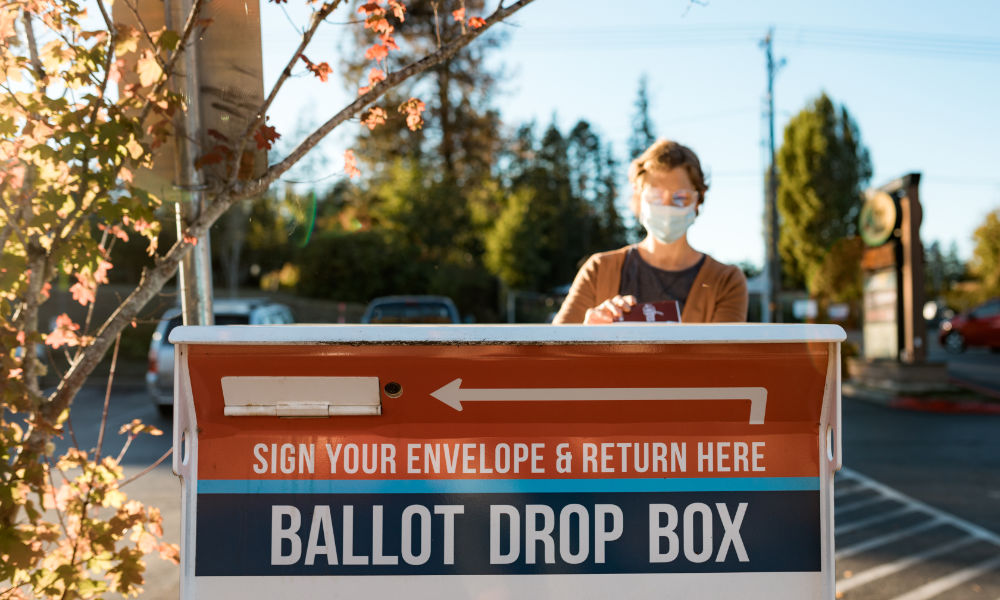 Watchdog report: Experts see substantial danger to democratic stability around 2020 election
Watchdog report: Experts see substantial danger to democratic stability around 2020 electionBright Line Watch survey finds political scientists deeply concerned about the president’s refusal to commit to a peaceful transfer of power after the election.
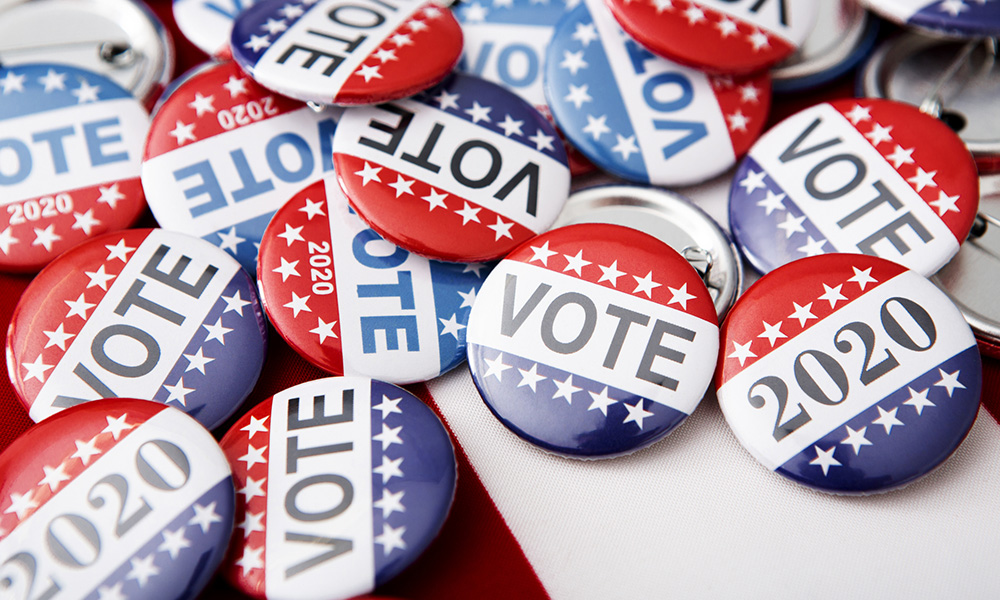 How to make sense of 2020’s unusual election season
How to make sense of 2020’s unusual election seasonRochester political scientists say concerns about this year’s electoral process are challenging some fundamental ideas about the nation.
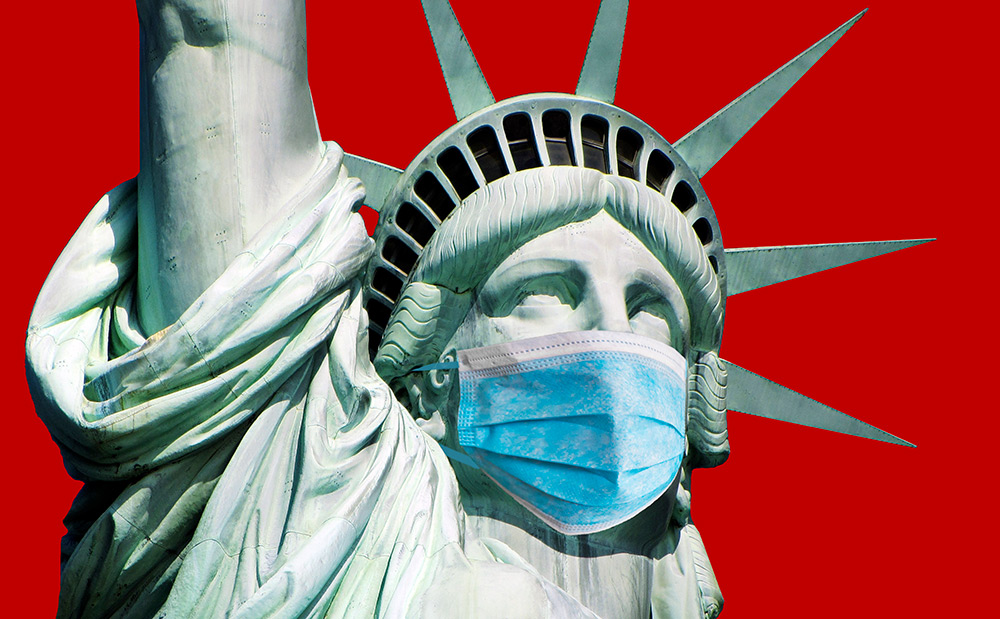 Watchdog report: US democratic indicators plummet amid racial justice protests and pandemic
Watchdog report: US democratic indicators plummet amid racial justice protests and pandemicBright Line Watch analysis finds erosion “across the board” on measures of democratic principles and how well the US is abiding by them.


